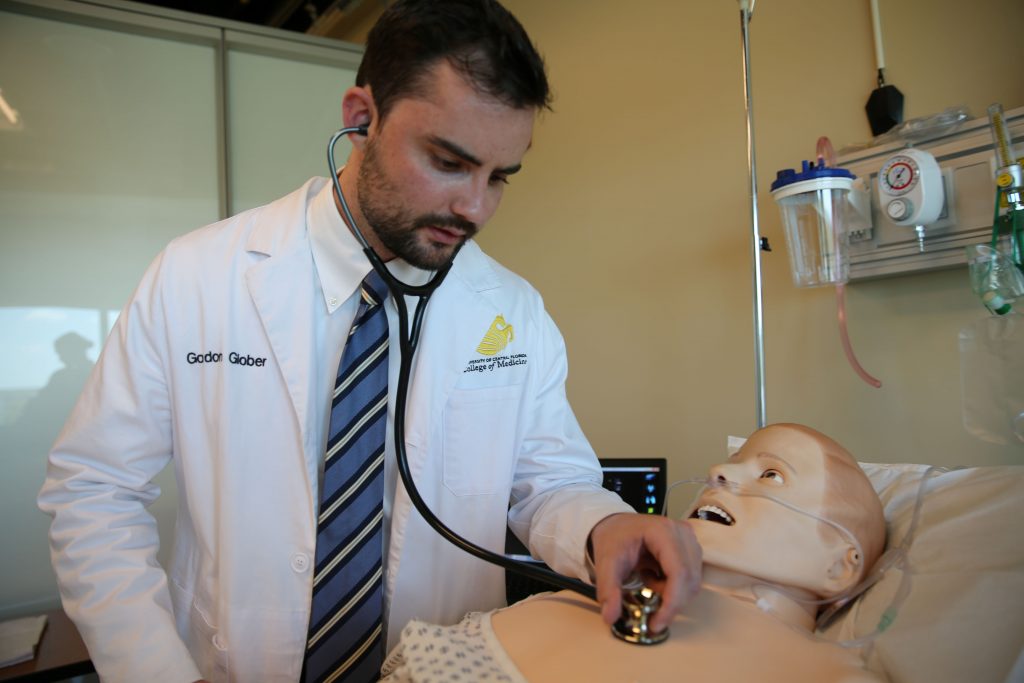- College of Medicine Communique Faculty News
UCF’s College of Medicine is celebrating Simulation Week 2023 by recognizing the people and activities within our Clinical Skills and Simulation Center that are helping create the next generation of doctors.

The center supports the education of medical students — and residents and community healthcare providers — by providing real-world simulations of patient care.
The medical school’s curriculum is clinically-based and patient-centered – so much so that students get their first simulation experience during their first two weeks of medical school. The center serves an average of 300 medical students a week, teaching clinical assessment and intervention skills, such as heart, lung and bowel sounds, venipuncture and catheterization. That translates into more than 120,000 learner hours in the first two years of medical school.
“Simulation allows students to both apply what they learned through lectures and create their own knowledge through experience,” says Jason Konzelmann, who joined UCF as the center’s director in June. “The experience of integrating different aspects of what they’re learning in the simulation center provides a safe environment for them to learn from their mistakes.”
Such hands-on experience is important before students enter their third and fourth years, where they care for actual patients at hospitals and clinics.
The 7,500-square-foot center includes:
- A variety of clinical and hospital settings for students to learn and practice essential patient-care skills, including 16 exam rooms set up with medical equipment you would find in any standard exam room.
- Nearly 90 standardized patients (SPs) – individuals trained to portray a specific medical case. They join faculty, and specialized physical exam teaching associates, who educate students on how to do clinical exams and take patient histories.
Konzelmann said standardized patients are the heartbeat of simulation-based education, as they help students develop their clinical and communications skills. The center’s SPs provide more than 7,000 hours of training to medical students a year, making the College of Medicine the most extensive standardized patient program in the region.
- High-fidelity manikins supported by the center’s tech team that can speak, sweat, cough and respond in real time to various doses of prescription drugs. The manikins – adults and children — support a clinical scenario – such as a drug overdose or heart attack – to provide maximized hands-on learning experiences.
- All rooms are video compatible so students can watch and learn from their encounters. The center also includes an instructor’s one-way glass viewing station, so faculty can evaluate a student’s performance in real time. The center’s learning management system keeps faculty informed on students’ progress so faculty can continue to build and improve the curriculum.
“Standardized Patients have a profound impact on learners in medical and health care education and are often critical for a learner to practice difficult conversations,” said Mary Ann Reiner, who manages the Standardized Patient Program. “SPs simulate real-life patient interactions for an immersive learning experience in a safe environment allowing for the practice of clinical skills and communication without risking patient harm.”
As we celebrate Simulation Week Sept. 18-22, thank you to our Clinical Skills and Simulation team.
Post Tags
- clinical skills and simulation center Simulation